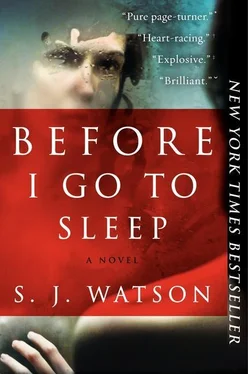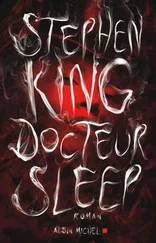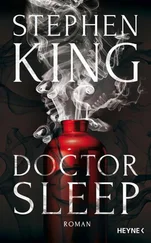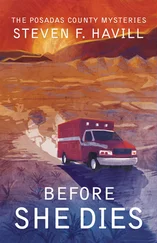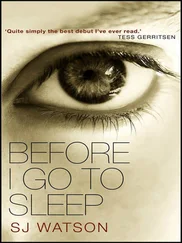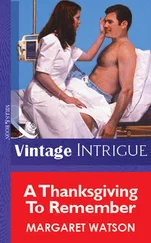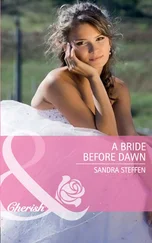It happened in the kitchen.
A woman—Amanda—had answered the doorbell’s insistent buzz, greeting Dr. Nash with a handshake and me with a look that hovered between pity and fascination. “You must be Christine,” she’d said, tilting her head to one side and holding out her manicured hand. “Do come in!”
She closed the door behind us. She was wearing a cream blouse, gold jewelry. She introduced herself and said, “You stay as long as you like, okay? As long as you need. Yes?”
I nodded and looked around. We were standing in a bright, carpeted hallway. The sun streamed through the glass panels in the window to pick out a vase of red tulips that sat on a side table. The silence was long and uncomfortable. “It’s a lovely house,” Amanda said, eventually, and for a moment I felt as if Dr. Nash and I were prospective purchasers and she a real estate agent keen to negotiate a deal. “We bought it about ten years ago. We just adore it. It’s so bright. Do you want to go into the living room?”
We followed her into the lounge. The room was sparse, tasteful. I felt nothing, not even a dull sense of familiarity; it could have been any room in any house in any city.
“Thank you so much for letting us look around,” said Dr. Nash.
“Oh, nonsense!” she said, with a peculiar snort. I imagined her riding horses or arranging flowers.
“Have you done a lot of decorating since you were here?” he said.
“Oh, some,” she said. “Bits and pieces.”
I looked around at the sanded floorboards and white walls, at the cream sofa, the modern art prints that hung on the wall. I thought of the house I had left this morning; it could not have looked more different.
“Do you remember how it looked when you moved in?” said Dr. Nash.
She sighed. “Only vaguely, I’m afraid. It was carpeted. A kind of biscuit color, I think. And there was wallpaper. Sort of striped, if I remember.” I tried to picture the room as she’d described it. Nothing came. “There was a fireplace we had removed, too. I wish we hadn’t, now. It was an original feature.”
“Christine?” said Dr. Nash. “Anything?” When I shook my head he turned to Amanda. “Do you think we could look around the rest of the house?”
We went upstairs. There were two bedrooms. “Giles works from home a good deal,” she said as we went in the one at the front of the house. It was dominated by a desk, filing cabinets, and books. “I think the previous owners must have used this as their bedroom.” She looked at me, but I said nothing. “It’s a little bigger than the other room, but Giles can’t sleep in here. Because of the traffic.” There was a pause. “He’s an architect.” Again, I said nothing. “It’s quite a coincidence,” she continued, “because the man we bought the house off was also an architect. We met him when we came by to look at the place. They got on quite well. I think we knocked him down by a few thousand just because of the connection.” Another pause. I wondered if she was expecting to be congratulated. “Giles is setting up his own practice.”
An architect, I thought. Not a teacher, like Ben . These can’t have been the people that he had sold the house to. I tried to imagine the room with a bed instead of the glass-topped desk, carpet and wallpaper replacing the stripped boards and white walls.
Dr. Nash turned to face me. “Anything?”
I shook my head. “No. Nothing. I don’t remember anything.”
We looked in the other bedroom, the bathroom. Nothing came to me, and so we went downstairs, into the kitchen. “Would you like a cup of tea?” said Amanda. “It’s really not a problem. It’s made already.”
“No, thank you,” I said. The room was harsh. Hard-edged. The appliances were chrome and white, and the countertop looked like poured concrete. A bowl of limes provided the only color. “I think we ought to leave soon,” I said.
“Of course,” said Amanda. Her breezy efficiency seemed to have vanished, replaced by a look of disappointment. I felt guilty; she had obviously hoped that a visit to her home would be the miracle that cured me. “Could I have a glass of water?” I said.
She brightened immediately. “Of course!” she said. “Let me get you one!” She handed me a glass and it was then, as I took it from her, that I saw it.
Amanda and Dr. Nash had both disappeared. I was alone. On the countertop, I saw an uncooked fish, wet and glistening, lying on an oval plate. I heard a voice. A man’s voice. It was Ben’s voice, I thought, but younger, somehow. “White wine?” it said. “Or red?”—and I turned and saw him coming into a kitchen. It was the same kitchen—the one I was standing in with Dr. Nash and Amanda—but it had different-colored paint on the walls. Ben was holding a bottle of wine in each hand, and it was the same Ben but slimmer, with less gray in his hair, and he had a mustache. He was naked, and his penis was semierect, bobbing comically as he walked. His skin was smooth, taut over the muscles of his arms and chest, and I felt the sharp tug of lust. I saw myself gasp, but I was laughing.
“White, I think?” he said, and he laughed with me, and then he put both bottles down on the table and came over to where I stood. His arms encircled me, and then I was closing my eyes, and my mouth opened, as if involuntarily, and I was kissing him, and he me, and I could feel his penis pressing into my crotch and my hand moving toward it. And, even as I was kissing him, I was thinking, I must remember this, how this feels. I must put this in my book. This is what I want to write.
I fell into him then, pressing my body against his, and his hands began to tear at my dress, groping for the zipper. “Stop it!” I said. “Don’t—” But even though I was saying no, asking him to stop, I felt as though I wanted him more than I had ever wanted anyone before. “Upstairs,” I said, “quick,” and then we were leaving the kitchen, tearing at our clothes as we went, and heading up to the bedroom with the gray carpet and blue patterned wallpaper, and all the time I was thinking, Yes, this is what I ought to be writing about in my next novel, this is the feeling I want to capture.
I stumbled. The sound of breaking glass, and the image in front of me vanished. It was as if the reel of film had run through, the images on the screen replaced with a flickering light and the shadows of dust motes. I opened my eyes.
I was still there, in that kitchen, but now it was Dr. Nash standing in front of me, and Amanda a little way past him, and they were both looking at me, concerned and anxious. I realized I had dropped the glass.
“Christine,” said Dr. Nash. “Christine. Are you okay?”
I did not answer. I did not know what to feel. It was the first time—as far as I knew—I had ever remembered my husband.
I closed my eyes and tried to will the vision back. I tried to see the fish, the wine, my husband, with a mustache, naked, his penis bobbing, but nothing would come. The memory had gone, evaporated as if it had never existed, or had been burned away by the present.
“Yes,” I said. “I’m fine. I—”
“What’s wrong?” said Amanda. “Are you all right?”
“I remembered something,” I said. I saw Amanda’s hands fly to her mouth, her expression change to one of delight.
“Really?” she said. “That’s wonderful! What? What did you remember?”
“Please—” said Dr. Nash. He stepped forward, taking my arm. Broken glass crunched at his feet.
“My husband,” I said. “Here. I remembered my husband—”
Amanda’s expression fell. Is that all? she seemed to be saying.
“Dr. Nash?” I said. “I remembered Ben!” I began to shake.
Читать дальше
